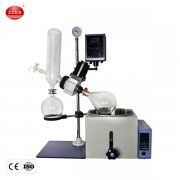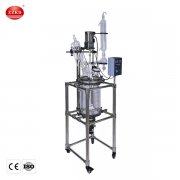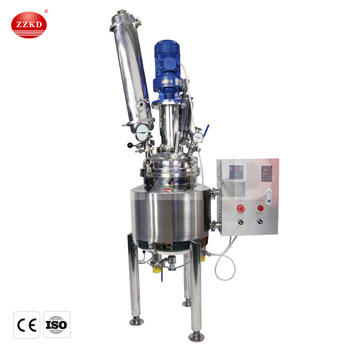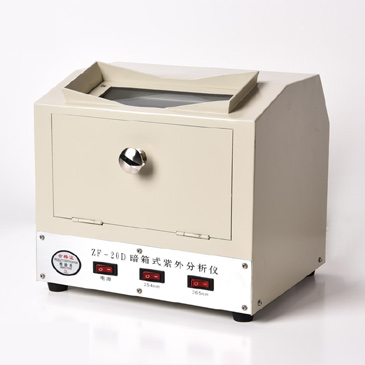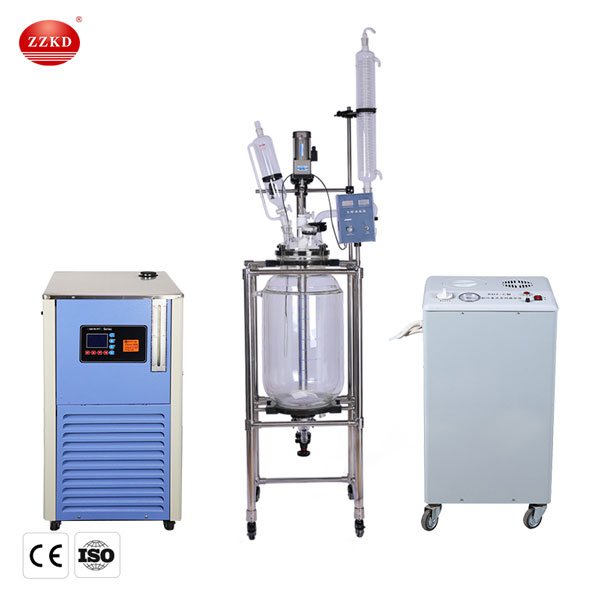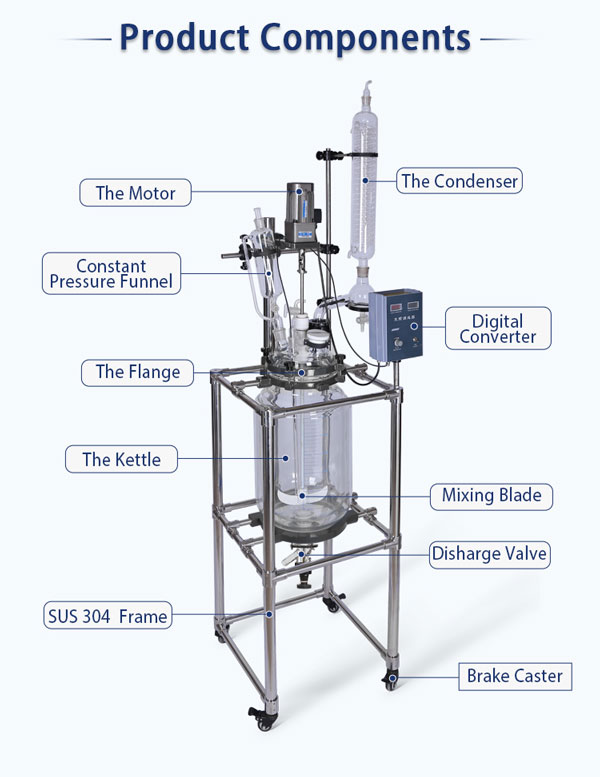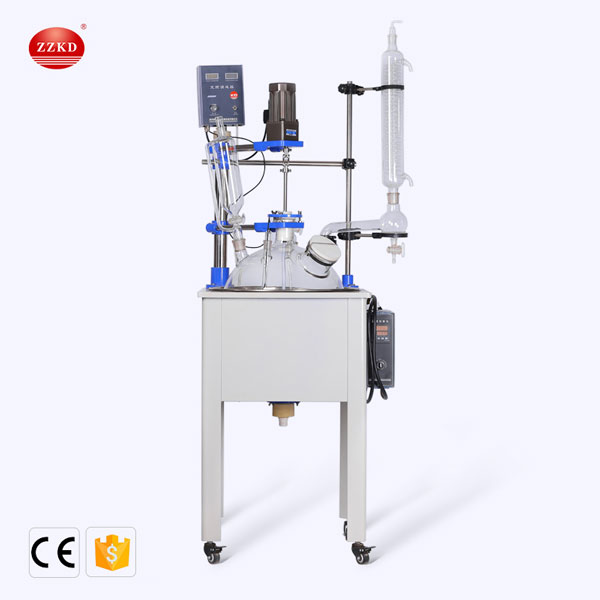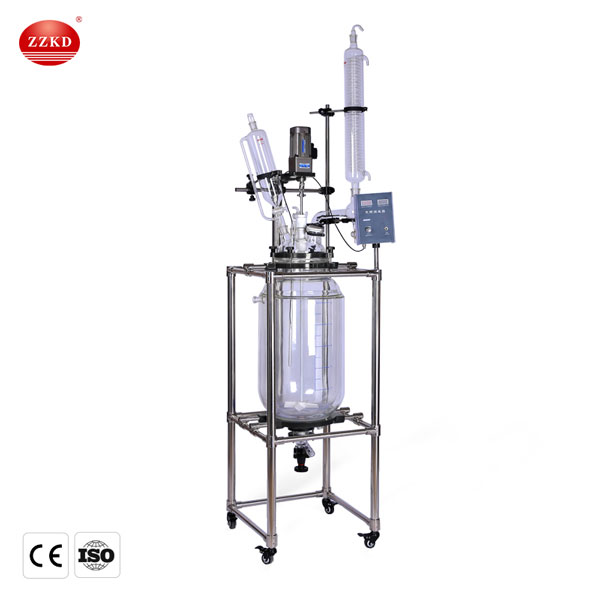A
chemical glass reactor is a piece of laboratory equipment designed for chemical reactions. Glass reactors are widely used in research and development, pharmaceuticals, and chemical engineering. A chemical glass reactor is a large size reactor used in industries for high-capacity reactions.
Design of a chemical glass reactor:
A chemical glass reactor is a cylindrical vessel made of high-quality borosilicate glass. Borosilicate glass is known for its high resistance to thermal shock, chemical corrosion, and mechanical stress. The vessel has a flat bottom, which makes it stable and easy to set up. The reactor is equipped with a motorized stirrer, which helps to mix the reactants evenly.
The reactor also has a heating mantle, which is used to control the temperature of the reaction. The heating mantle is made of a heating element that is wrapped around the reactor vessel. The heating mantle is controlled by a digital controller, which maintains the desired temperature of the reaction.
Glass Vessel:
The glass vessel is the main component of the reactor and is where the chemical reaction takes place. It is typically made of borosilicate glass and is designed to withstand high temperature and pressure.
Heating and Cooling System:
Glass reactors are equipped with a heating and cooling system that allows for precise temperature control during the reaction. This system is usually composed of a heating mantle, temperature sensor, and cooling coil or jacket that circulates a heating or cooling fluid around the vessel.
Stirring System:
The stirring system consists of a motor, stirrer shaft, and impeller that stir the contents of the vessel to ensure even mixing and reaction.
Sealing System:
The sealing system consists of a lid or cover that seals the vessel and prevents the escape of the reaction products or reactants. The lid may be equipped with various ports or valves for adding or removing reactants, monitoring the reaction, or adjusting the pressure.
Pressure Relief System:
Glass reactors may be equipped with a pressure relief system, such as a rupture disc or pressure release valve, to prevent overpressure and ensure operator safety.
Support Stand:
The support stand holds the glass vessel in place and may be equipped with casters for mobility or leveling feet for stability.
Control System:
The control system includes various instruments and sensors, such as temperature controllers, pressure gauges, and flow meters, that allow the operator to monitor and adjust the reaction conditions.
Uses of a chemical glass reactor:
A chemical glass reactor is a versatile piece of laboratory equipment that is used for a wide range of chemical reactions. The reactor is suitable for both batch and continuous reactions. Here are some of the applications of a chemical glass reactor:
Chemical Synthesis:
A chemical glass reactor is used for the synthesis of organic and inorganic compounds. The reactor is suitable for reactions that require high temperature and pressure. The reactor is also used for reactions that require a controlled atmosphere. The motorized stirrer helps to mix the reactants evenly, which leads to a more efficient reaction.
Crystallization:
A chemical glass reactor is used for the crystallization of organic and inorganic compounds. The reactor provides a controlled environment for the growth of crystals. The heating mantle helps to maintain the desired temperature of the reaction, which is important for the growth of crystals.
Distillation:
A chemical glass reactor is used for distillation, which is the process of separating the components of a mixture based on their boiling points. The reactor is equipped with a distillation column, which is used to separate the components of the mixture. The heating mantle is used to heat the mixture, and the motorized stirrer helps to mix the components evenly.
Polymerization:
A chemical glass reactor is used for the polymerization of monomers. The reactor provides a controlled environment for the growth of polymer chains. The motorized stirrer helps to mix the monomers evenly, which leads to a more efficient reaction.
Benefits of a chemical glass reactor:
Versatility:
A chemical glass reactor is a versatile piece of laboratory equipment that can be used for a wide range of chemical reactions. The reactor is suitable for both batch and continuous reactions.
Safety:
A chemical glass reactor is made of high-quality borosilicate glass, which is resistant to thermal shock, chemical corrosion, and mechanical stress. The glass is also non-reactive, which makes it safe for use with a wide range of chemicals.
Ease of Use:
A chemical glass reactor is easy to use and set up. The reactor has a flat bottom, which makes it stable, and the motorized stirrer helps to mix the reactants evenly.
Different Types of chemical glass reactor
Glass reactors are widely used in chemical and pharmaceutical industries for carrying out various types of reactions. They come in different sizes and shapes, each designed for specific purposes. Below are some of the different types of glass reactors:
Single-Layer chemical glass reactor:
A single-layer glass reactor is the simplest type of glass reactor. It consists of a single glass vessel with a heating mantle, stirrer, and temperature controller. This type of reactor is ideal for small-scale reactions and is often used in teaching and research laboratories. Single-layer glass reactors are easy to use, cost-effective, and require less space compared to other types of reactors. However, they are not suitable for reactions that require precise temperature control or pressure.
Double-Layer chemical glass reactor:
A double-layer glass reactor consists of two glass vessels with a heating mantle and a stirrer. The space between the two vessels is filled with a cooling or heating fluid, which helps to maintain the temperature of the reaction. This type of reactor is ideal for carrying out reactions that require a high degree of temperature control. Double-layer glass reactors are more versatile than single-layer reactors and are often used for larger-scale reactions. However, they are more complex and require more space compared to single-layer reactors.
Triple-Layer chemical glass reactor:
A triple-layer glass reactor is similar to a double-layer reactor, but with an additional layer. The extra layer provides better insulation and helps to maintain the temperature of the reaction. It is often used for reactions that require a high degree of temperature control and pressure. Triple-layer glass reactors are more advanced than double-layer reactors and are often used for reactions that require more precise temperature control or pressure. However, they are more complex and expensive compared to single-layer and double-layer reactors.

 Products
Products





